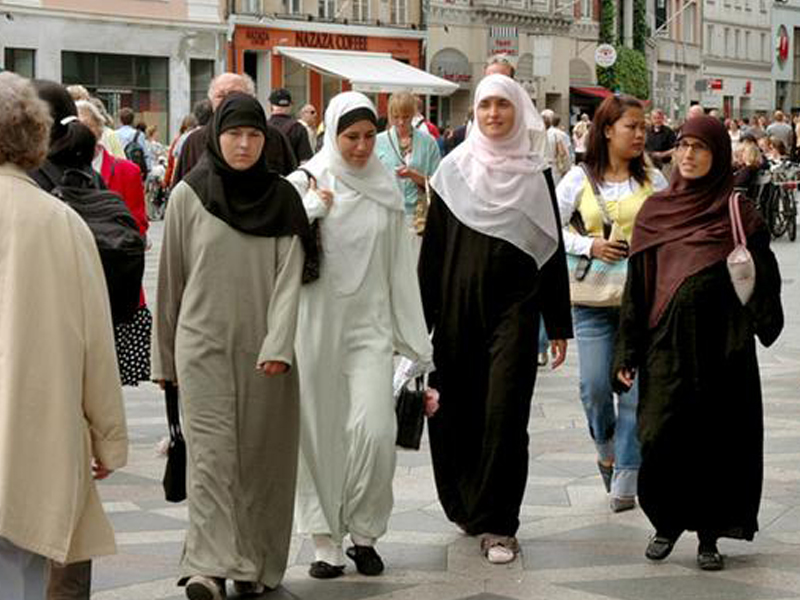How Does Denmark Treat Muslims as Second-Class Citizens?

Two years ago, Denmark's former Minister for Immigration and Integration, Mattias Tesfaye, sought to determine whether there was a relationship between immigration status and how persons appeared in the ministry's crime and employment data.
As a result, Tesfaye oversaw the development of a novel and unusual statistical measure known as MENAPT, which stands for Middle East, North Africa, Pakistan, and Turkiye.
This measure differs from the classification for non-Western countries currently used by Statistics Denmark, the central organization responsible for gathering, compiling, and disseminating statistics on Danish society.
Systemic Discrimination
MENAPT is an expansion of the contentious phrase MENA (Middle East and North Africa), which was coined by Europe to put together countries with populations in the tens of millions for the purposes of their own foreign policy.
Since the British India Office originally used the term "Middle East" in the 1850s and Alfred Thayer Mahan, a well-known supporter of American naval supremacy, later made it popular, the term MENA is also considered a colonial legacy.
Dr. Etee Bahadur, a professor at Jamia Millia Islamia, stated in OpIndia that the term "Middle East" has a vaguely Eurocentric feel to it since it is only when viewed from Europe can the area be referred to as the "Middle East."
If the "Middle East" were to be considered geographically, it would actually be along the western end of Asia.
The European Islamophobia Report 2021, which was published late last month, included a whole chapter about Denmark where it referred to the MENAPT list to demonstrate how structural hurdles for Muslims increased in Denmark as a result of new laws and regulations.
According to the report, the category could give the government the opportunity to specifically target Muslim citizens by assuming that they are Muslims based on their countries of origin and enabling politicians to expressly discriminate against Muslim citizenship applicants with little to no oversight from the general public.
According to a 2021 research by the Danish Institute of Human Rights, 35% of the children of migrants—many of whom were Muslims and were born in Denmark—lacked Danish citizenship, making it difficult for them to compete on an even playing field with their Danish counterparts.

No Secrets
In a press statement, Hizb ut Tahrir in Denmark issued a statement in January 2022 claiming that Denmark's stance towards Muslim migrants is clearly discriminatory.
The statement said that the Finance Act's proponents claimed an agreement had been reached on a plan to address racism with the Danish government.
"It is no secret that Danish politicians and the establishment media have stoked animosity toward the Muslim minority for 20 years," the statement said.
Despite changing legislative majorities and governments over the past 20 years, a strong stance against immigration, refugees, and particularly Muslims has maintained a firmly entrenched political course, presenting countless specific laws and demonizing Muslims.
The Ghetto bill, the Imam law, the Burqalaw, and concepts like "MENAPT nations," which by law disparage anyone of Muslim ancestry, are examples of legal, state-sanctioned prejudice towards Muslims.
"Legislation on 'parallel societies' automatically include descendants with 'non-Western background' in negative statistics, no matter how well-educated or highly paid they are. It is racism in its purest and most unambiguous form," the statement added.
On the one hand, the government fosters anti-Muslim prejudice and cultural conflict. Politicians even debate whether Muslims should be institutionally mocked and ridiculed for their views while they attend school. On the other hand, the government wants to defend itself and position itself as the anti-racism avant-garde.
"Therefore, this project is completely lacking in sincerity and trustworthiness. Especially considering that it was released in conjunction with the introduction of another government plan of action against 'anti-Semitism,'" according to the statement.
The most susceptible "religious group" is Islam, according to the National Police's yearly registry of hate crimes.
A survey from December 2021 found that a significant portion of the Danish population's perception of Muslims had been altered and misrepresented, which is the result of twenty years of intensive propaganda and demonization of Muslims.

United Against Refugees
The country's priority has turned away from the integration and long-term protection of refugees to the kind of temporary residency permits as a result of legal changes that have been implemented by succeeding governments.
Last year, then Prime Minister Mette Frederiksen of the left-leaning Social Democrats of the nation reaffirmed her party's determination to be as harsh on immigration as her right-leaning counterparts,
She told parliament that the objective was to have "zero asylum seekers." In the lead-up to Denmark's 2019 election, Frederiksen took an aggressive stance on immigration, pulling people away from the right-wing populist Danish People's Party (DPP).
Denmark has recently implemented some of the harshest anti-immigration laws in Europe, including the so-called "jewelry bill," which gives the government the right to seize assets from certain asylum seekers to contribute to the country's welfare state.
Inger Stojberg, a former immigration minister for the Liberal Party, made a cake to celebrate the passing of a new law that tightened immigration regulations in 2017.
The right-wing populist DPP's ten-year-old demand to ban face coverings in public was implemented the following year, thus making Muslim women who wear the niqab or burqa criminals.
In 15 low-income housing estates across the nation in 2019, which it named "hard ghettos" and which Danish regulations define in part based on the residents' races, the government imposed social and ethnic change.
The government announced that it would stop using the term "ghetto" but would instead strengthen the legislation to stop the spread of such neighborhoods.
But according to a news release from the Interior and Housing Ministry, the goal is for "people with non-Western heritage" to only make up to 30% of any neighborhood in Denmark by the end of the decade.











